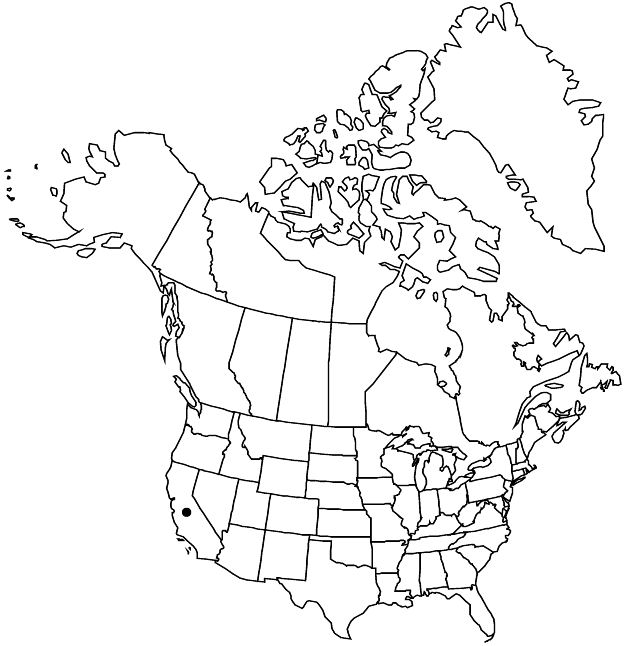Difference between revisions of "Sidalcea hickmanii subsp. anomala"
Perenn. Sp. Sidalcea, 79. 1957.
FNA>Volume Importer |
FNA>Volume Importer |
||
| Line 57: | Line 57: | ||
|publication year=1957 | |publication year=1957 | ||
|special status=Conservation concern;Endemic | |special status=Conservation concern;Endemic | ||
| − | |source xml=https://jpend@bitbucket.org/aafc-mbb/fna-data-curation.git/src/ | + | |source xml=https://jpend@bitbucket.org/aafc-mbb/fna-data-curation.git/src/8f726806613d60c220dc4493de13607dd3150896/coarse_grained_fna_xml/V6/V6_607.xml |
|subfamily=Malvaceae subfam. Malvoideae | |subfamily=Malvaceae subfam. Malvoideae | ||
|genus=Sidalcea | |genus=Sidalcea | ||
Revision as of 17:49, 18 September 2019
Plants often mound-forming, 0.3–0.6 m, with taproot. Stems usually crowded in older plants, erect to ascending, usually reddish, grayish stellate-hairy, hairs coarse, longest 1.5 mm. Leaves: stipules wide-lanceolate to ovate, 6–8 × 2.5–3 mm; petiole 3–6 cm, 1–3 times as long as blade; blades on proximal portion of stem rounded, those distally with wide sinus, deeply, palmately (3–)5–7-lobed, incised ± to base, 2–6 × 2–6 cm, narrowed to base, margins crenate-dentate, surfaces coarsely stellate-hairy. Inflorescences open, usually branched, 10–20 cm; bracts distinct, ovate-lanceolate to ovate, (7–)10–12 mm, 3–4 times longer than pedicels, equaling or shorter than calyx. Pedicels 1–4 mm, obscured by bracts; involucellar bractlets 3, 8–10 mm, ± equaling calyx. Flowers bisexual or pistillate, plants gynodioecious; calyx 10–12 mm, densely long-bristly; petals pinkish lavender, veins often paler, 12–15 mm; staminal column 6–7 mm, hairy; anthers white to pale pinkish; stigmas usually 6. Schizocarps 5–6 mm diam.; mericarps usually 6, (1.5–)2–2.5 mm, smooth except for dorsal-medial line and several transverse corrugations especially at margins. Seeds 1.5–2 mm.
Phenology: Flowering Apr–May(–Jun).
Habitat: Closed-cone conifer forests and chaparral, usually serpentine
Elevation: 600–800 m
Discussion
Of conservation concern.
Subspecies anomala is known from the vicinity of Cuesta Pass, outer South Coast Ranges, San Luis Obispo County, and is distinctive in its hemispheric-mounding habit, deeply palmately lobed leaves, and relatively large bracts that equal the calyx in length. It is listed as endangered in California and is occasionally cultivated.
Subspecies anomala is in the Center for Plant Conservation’s National Collection of Endangered Plants.
Selected References
None.
